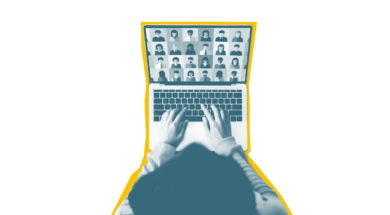
Three ways to reduce anxiety about the future of work
Will the future of work carry us forward or swamp us?
The potential for dystopian outcomes seems to be creating a sense of fear around how employment may evolve, but these are not the only plausible futures we could encounter. There will be many opportunities in the changes ahead, too. Our challenge is how to prepare so that we don’t end up in a jobless, dystopian world.
The perception of what’s driving these changes is also unbalanced. The rapid evolution of technology is usually cited as the key driver, from automation and displacement of jobs to the requirement for new skills. But shifting social values, evolving employee needs, climate change, globalization and demography are also playing a role.
The outcome is a world of work that will is likely to be drastically different in the future. The Public Policy Forum’s recent Canada Next series offers three key insights on how we could help ensure a more positive outcome from the future of work.
1. Eliminate the digital divide

Future jobs will depend on technology and digital connectivity to provide services and connect people and employers. This means that having access to technology and data will become a prime requirement to succeed in the future of work, from enabling training and education to supporting businesses and jobs. This is essential if we want to ensure that no one is left behind.
Wendy Cukier’s Canada Next paper on inclusive innovation points out that we still have a significant urban-rural divide when it comes to high-speed internet access. This means that a portion of our population could struggle to access the required infrastructure to help them succeed in a changing world of work. And this divide is even more stark when we look at remote Indigenous communities across Canada.
2. Facilitate the portability of skills

The future of work is likely to involve more fluid employment models, with workers regularly moving between different jobs, roles and opportunities. As digital technologies and virtual work blur international borders, this is likely to happen on a global scale as well. The first challenge this creates is around the recording, validation and portability of skills and experience. But this fluid world of work is also likely to reduce the willingness of employers to invest in training employees that do not stay for long.
In his Canada Next paper, Jon Shell proposes building a global, open platform for training and employment that would facilitate mobility of workers and skills upgrading. This would help workers find new opportunities while maintaining an easily reusable record of their skills and experience. It would also provide a platform for easily transferable education and training, so that workers can continually update and market new skills.
3. Attach benefits to workers, not jobs

As mentioned above, the future of work is likely to be characterized by a fluidity in employment, with workers moving frequently. This creates a major challenge when it comes to pensions and benefits. In Canada and many other jurisdictions, pensions and benefits tend to be tied to employers and are used as a means for attracting and retaining full time employees in permanent jobs. In a more fluid future, many workers are unlikely to have access to adequate pensions and benefits, and employers will have little incentive to provide pensions and benefits to non-permanent staff.
Rather than waiting for a crisis to develop, Sunil Johal and Wendy Cukier argue in their Canada Next paper that we need to develop flexible new models that allow pensions and benefits to move with workers. This would provide the opportunity for those without permanent jobs to feel more secure as they navigate a fluid future of work.
Let’s make sure we ride the wave
Uncertainty can create fear around what the future of work may hold for us all. But there are steps we can take now to deal with that uncertainty: bridge the digital divide so that everyone has good access to the technology backbone that will enable to future of work; Create training, certification and job-finding platforms that support workers in a global, fluid world of work; and ensure the portability of skills, education, benefits and pensions.
We can hold on to the past and be washed away by the tsunami of change coming our way in the future of work or we can set the right policies in place today that allow us to ride this wave of change successfully.
Brave New Work is a major multi-year initiative by the Public Policy Forum, with the support of the following sponsors and partners:
Thank you to our lead sponsor:
 |
Thank you to our partners:
 |
 |
 |






